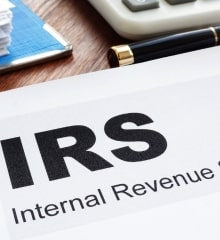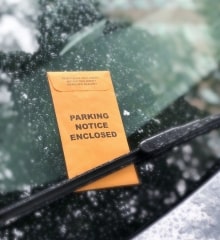What Happens When a Car Is Repossessed in Georgia?
Updated on 19 May 2025
If you, like many others, are experiencing financial hardship and have defaulted on your auto loan, it is likely that your car will be repossessed. Repossession occurs when the lender reclaims a financed motor vehicle because the borrower has fallen behind on their payments. Once you miss your car payment, Georgia law allows your creditor to send a repo agent to tow away your car. This repossession can happen at your house while you are sleeping, at the grocery store while you are shopping or at your place of business!!
While there are established procedures for getting back your car after a repossession, they require you to pay the loan in full, which is generally not possible as most people cannot afford to do that. For many who are struggling financially, filing a Chapter 13 bankruptcy is the only way they will be able to permanently keep their vehicles and avoid repossession.
When Can Your Car Be Repossessed in Georgia?
Georgia has not established any deadlines for when a lender can repossess your vehicle once you have defaulted on your loan. This means that repossession is completely legal in Georgia once you’re just a single day late on your payments! While lenders will rarely resort to repossession this quickly and may prefer to make other arrangements, they are under no legal obligation to work with you if you are facing financial difficulties.
What Is the Repossession Procedure?
Once you’ve defaulted on your loan, your creditor can repossess your car without providing you any notice or setting foot in a courtroom. The repo agent can simply come and tow away your vehicle. In fact, as long as agents don’t use force or breach the peace, Georgia even allows them to take cars and trucks from private property.
After the car has been taken, the lender must notify you of the vehicle repossession and inform you that you have 10 days to pay the entire balance on the loan (plus repo costs, storage costs and late fees) and “redeem” the vehicle. If you do not pay off the loan during this period, the lender will usually sell the car at auction.
The auction sale price of the vehicle will be put towards your outstanding balance. If the income from the sale does not cover the entire amount, Georgia law permits lenders to sue you to recover the remaining amount, which is known as the “deficiency balance.”
How Can You Stop Repossession?
Although you may be able to negotiate an alternate payment plan with an auto loan company to temporarily avoid repossession, if you cannot afford to make your payments, you will likely find yourself falling behind again a few months later. If you are having financial difficulties, filing for a Chapter 13 bankruptcy with Debtstoppers can help you permanently keep your vehicle and eliminate your debts!
As soon as you file for bankruptcy in Georgia, you will receive an automatic stay that prohibits creditors from pursuing repossession. Whether you file under Chapter 7 or Chapter 13 of the bankruptcy laws, you can almost always work out a plan that lets you keep your car or truck. Plus, you’ll be able to reduce or entirely wipe out your unsecured debts in the process.
If you are facing repossession in Georgia, it is essential to know your rights and understand your legal options. Repossession can be a traumatic experience, and it can have significant consequences on your credit score and financial stability. If you are struggling to make your car payments, the best course of action is to seek professional help from a reputable repossession lawyer.
Filing for bankruptcy can help you stop auto repossession and get back on track with your finances. It can provide you with a fresh start and allow you to reorganize your debts in a way that is manageable for you. Contact a bankruptcy attorney today to learn more about your options and take control of your financial future.
Understanding Georgia's Repossession Laws and Your Rights
It is crucial to know your rights and understand Georgia's repossession laws when facing the possibility of vehicle repossession. By being aware of your legal options, you can better protect yourself and your property.
Impact of Repossession on Your Credit Score
A repossession can have a significant negative impact on your credit score and financial health. When a lender repossesses an asset, such as a car, due to missed payments, it signals to credit reporting agencies that you've defaulted on your loan.
When a repossession occurs, it usually results in a substantial drop in your credit score. Before repossession, you’ve likely missed several payments on your loan. Missed payments, especially those that are 30, 60, or 90 days overdue, are some of the most damaging factors on your credit report. Payment history accounts for 35% of your FICO score, so these missed payments already lower your score before the repossession even takes place.
Once the repossession occurs, the lender reports it to the three major credit bureaus. This creates a negative mark on your credit report and further lowers your score. Depending on the health of your credit beforehand, your score could drop by 100 points or more.
A repossession remains on your credit report for seven years from the date of the first missed payment that led to the repossession. Even though the repossession stays on your report for seven years, the impact on your credit score will diminish over time, especially if you work on improving your credit.
It is difficult to remove a repossession from your credit report unless there is an error in how the repossession was reported. If the repossession is reported incorrectly or inaccurately, you can dispute the entry with the credit bureaus – but if the repossession is valid, it will likely remain on your report for the full seven years.
What Are Your Rights During Repossession?
In Georgia, repossession agents must follow specific guidelines and avoid using force or breaching the peace when repossessing a vehicle. If a repo agent violates these rules, you may have a legal claim against them. It is essential to document any instances of misconduct by the repo agent to support your case.
Reinstating Your Auto Loan
In some cases, you might be able to reinstate your auto loan by catching up on missed payments and paying any associated fees. This option allows you to regain possession of your vehicle without paying off the entire loan balance. However, reinstatement is not guaranteed and depends on the terms of your loan agreement and your lender's policies.
Seeking Legal Help
If you are struggling to make your car payments and fear repossession, it is vital to seek professional help as soon as possible. A skilled bankruptcy attorney can help you understand your options and recommend the best course of action for your situation.
Bankruptcy as a Solution
Filing for bankruptcy may be a viable option to stop repossession and regain control of your financial future. A Chapter 13 bankruptcy allows you to reorganize your debts and create a repayment plan that fits your budget, often enabling you to keep your vehicle. An experienced bankruptcy attorney can help you determine if bankruptcy is the right solution for you and guide you through the process.
Alternatives to Bankruptcy for Avoiding Repossession
If you are facing the possibility of repossession but want to avoid filing for bankruptcy, several alternatives may help you keep your property and address your debt.
Your first step should be to contact your lender directly to explain your financial situation. Many lenders prefer to avoid repossession, which is costly and time-consuming for them, so they may be willing to work with you. You may be able to modify the terms of your loan, such as extending the loan term or reducing the interest rate. This can lower your monthly payments, making them more manageable. Some lenders offer deferment, which allows you to temporarily pause or reduce your payments for a set period. This can provide relief while you get back on your feet.
If your current loan payments are too high, refinancing might be an option. Refinancing replaces your existing loan with a new one, ideally with a lower interest rate or longer repayment period, making your monthly payments more affordable.
If you can’t afford the payments and repossession seems inevitable, selling the vehicle yourself may be a better option than letting the lender repossess it.
You can also consider debt consolidation, which involves taking out a new loan to pay off multiple debts, including the one threatening repossession. By consolidating your debts, you can combine all your payments into one, potentially at a lower interest rate or with a longer repayment term.
Alternatively, you can voluntarily surrender your car. In a voluntary repossession, you return the vehicle to the lender before they forcibly repossess it. While this will still negatively affect your credit, the damage may be less than with a forced repossession. It can also save you from additional fees associated with the repossession process.
If you're in danger of losing your car or other valuable property through repossession, selling other assets you own to pay off the debt could be a viable option. These assets could include jewelry, electronics, or even investments.
If you’re facing repossession, it’s wise to consider all your options. By consulting with a financial professional or consumer protection attorney, you can find the best strategy based on your specific financial situation.
Conclusion
Repossession can have severe consequences on your credit score and financial stability. Understanding your rights under Georgia's repossession laws and seeking professional help can make all the difference. By working with a knowledgeable bankruptcy attorney, you can explore your options, protect your rights, and find a solution that enables you to regain control of your financial future.


